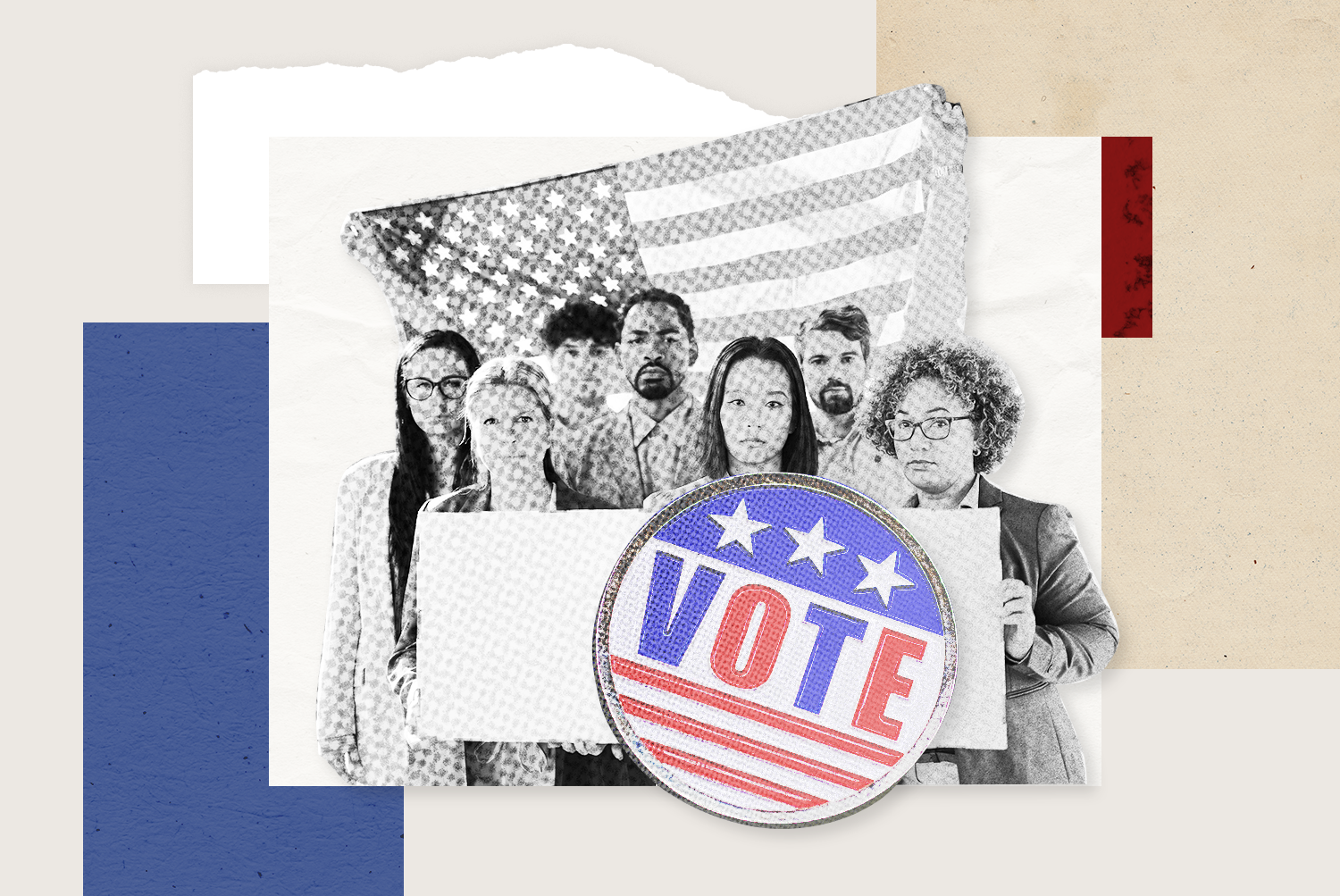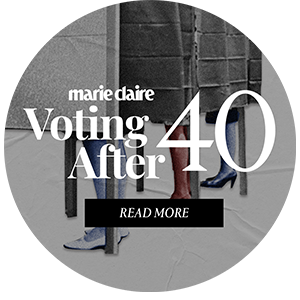Impact the Election, Even If You Can’t Vote
Missed the deadline to register? Unable to cast a ballot for some other reason? There are still ways you can make a difference.


When Ghida Dagher was 13, she volunteered on a campaign for the first time. “I did phone banking,” says Dagher, who is now CEO and President of New American Leaders, a nonpartisan nonprofit that trains first and second generation Americans to run for and succeed in office. “I was calling Arabic language speakers to talk to them about voting in that election cycle.” Dagher became a citizen and gained the right to vote just before she graduated college, but by then she already knew that even without that right, it was possible to make change and impact elections.
Millions of people in the U.S. don’t have the right to vote. More than four million are disenfranchised due to a felony conviction—even if they’ve been out of prison for decades, according to a 2022 study by The Sentencing Project, a research and advocacy center focused on decarceration. And there are other people who would like to vote but can’t: permanent legal residents (aka, green card-holders), who have been here most of their lives and pay taxes and recipients of DACA, which allows some immigrants who entered the U.S. as children to be eligible for temporary, renewable protections.
But, as Dagher demonstrated, there are still ways to become politically engaged. “Civic engagement, civic participation, and civic health is not just about voting,” says Nicole D. Porter, Senior Director of Advocacy at The Sentencing Project. “It's also about ongoing engagement with those who govern us and engaging in processes and policy discussions that have real impact on our material lives.”
From volunteering to using your personal expertise and language skills, here are five ways to use your voice to make change, even if you can’t cast a ballot.
Civic engagement, civic participation, and civic health is not just about voting.
Find organizations that align with your values, and fight for the issues you care about.
Figure out where you want to see the most change in your community, says Laura Hernandez, executive director of Freedom for Immigrants, a non-profit dedicated to abolishing immigration detention. “Then, plug in with a local organization that is working around that issue.” For example, when Hernandez was first becoming politically engaged, she focused on two issues close to her heart: immigration “because it directly affected me” and incarceration after she served more than 15 years in California youth, county, state, and immigration prisons.
Do some research online, in newspapers, and on social media platforms to find nonprofits and advocacy organizations that do the kind of work that feels most important to you. “I read the news to see who is being quoted on the issue that I am interested in working on and talking about,” Porter says. Then, she reaches out to them to learn more and see how she can help.

Volunteer for a campaign.
You don’t need a voter ID card to phone bank, knock on doors, canvas, or host fundraising events for candidates you support. “It's even something that you can do as a family. You can take your kids canvassing with you,” Hernandez says. “All you have to do is find a candidate that you want to put your weight behind and reach out [to their campaign]. They are always looking for canvassers.”
Get exclusive access to fashion and beauty trends, hot-off-the-press celebrity news, and more.
Plus, your unique capabilities can be invaluable: “It’s important for us to help make campaigns more culturally competent and aware of what's happening in communities around the country,” Dagher says. “Most new Americans speak multiple languages, and when they are participating in campaigns they're able to bring that skillset of language.” Just like she did when she was 13.
There are people living with felonies who are leading advocacy campaigns and rights restoration campaigns to expand the vote and to address other areas of criminal legal policy.
Use your experience and expertise to inform your activism.
Sometimes, the reason you can’t vote is also the reason people need to hear your voice: “There are people living with felonies who are leading advocacy campaigns and rights restoration campaigns to expand the vote and to address other areas of criminal legal policy,” Porter says. For example, James Jeter, who was formerly incarcerated, helped lead a campaign that won people on parole in Connecticut the right to vote. That included roughly 3,500 citizens (a group that was disproportionately people of color) and Jeter himself. “James helped write the law, get the law passed, and then benefited from that law,” Porter explains.
Stay informed about what’s going on in your local community.
Go to your local town hall, school board, or city council meetings, suggests Melissa Shumsky, Housing Program Manager and Citizen Coach at Mass Liberation, a nonprofit that provides tools and skills to people returning to society after being incarcerated. Most of these meetings are open to the public and can help you stay informed about the goings-on in your community and how your tax dollars are being used. “Just by being present or listening in on Zoom, you can get involved,” Shumsky says. When you know what’s happening in your community, you’ll be more inspired to take action.
Engage your family and friends
If you’re volunteering for a campaign, heading to a rally, or attending a local town council meeting, ask your loved ones to come with you, Dagher says. “I've taken folks to knock doors and it makes a really big difference [when talking to voters]. It makes a campaign much more approachable when they see people like us [immigrants] on it or engaging around it.”

Jessica Goodman is the New York Times bestselling author of The Counselors, They'll Never Catch Us, and They Wish They Were Us. She is the former op-ed editor at Cosmopolitan magazine, and was part of the 2017 team that won a National Magazine Award in personal service. She has also held editorial positions at Entertainment Weekly and HuffPost, and her work has been published in outlets like Glamour, Condé Nast Traveler, Elle, and Marie Claire.
